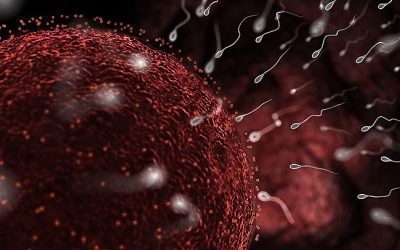- Latest news▼
-
12:16, April 19 Scientists grow human mini-lungs in lab

-
10:23, April 19 JAMA Oncology: Urine test can help rule out high-grade prostate cancer with almost 100% accuracy, study shows

-
18:00, April 18 Daily Mail: Elderly woman in China gets infected with brain-eating amoeba

-
14:19, April 18 Obesity: exercising before breakfast helps you lose weight faster

-
10:42, April 18 The Conversation: childhood trauma can cause pathological hoarding

-
08:37, April 18 Daily Mail: Satiating food reduces cravings for sweets, nutritionist says

-
18:22, April 17 First Armenian-German Conference entitled “Heart Failure Spring School”

-
08:38, April 17 Why do kids usually recover from COVID-19 more easily than adults?

-
14:37, April 16 Daily Mail: intermittent fasting is not suitable for children and women before their periods

-
16:41, April 15 Cell: in carriers of defective BRCA2 gene, sugar consumption increases cancer risk

-
15:04, April 15 305 cases of measles recorded in Armenia so far in 2024

-
14:38, April 15 Food and Environmental Virology: tea contributes to effective coronavirus control

-
12:41, April 15 Daily Mail: vitamin A, B3 and E supplements can be dangerous

-
10:56, April 15 Diabetes Care: evening physical activity is good for the heart

-
08:27, April 15 Women are more susceptible to blood loss and death during bypass surgery than men, researchers say

All materials
Trying for a baby? You should have sex ALL month long

Having sex even outside a woman’s ‘fertile window’ can boost the chances of having a baby, according to research.
Scientists found that regular sex throughout the month alters the woman’s immune system, making her body more hospitable for pregnancy.
The changes to her immune system mean her body is less likely to reject sperm or an emerging embryo as a ‘foreign invader’, they said.
So at ovulation - when an egg is released from the ovaries, around the middle of the menstrual cycle - her body is better prepared to conceive.
‘It’s a common recommendation that partners trying to have a baby should engage in regular intercourse to increase the woman’s chances of getting pregnant – even during so-called ‘non-fertile’ periods – although it’s unclear how this works,’ said lead author of the study, Dr Tierney Lorenz.
‘This research is the first to show that sexual activity may cause the body to promote types of immunity that support conception.
‘It’s a new answer to an old riddle: How does sex that doesn’t happen during the fertile window still improve fertility?’
The ‘fertile window’ begins five days prior to ovulation and ends the day after the egg is released.
For the study, researchers from Indiana University used data from the menstrual cycles of 30 healthy women.
Half the women were sexually active and half did not have sex at all.
The researchers found that women who were having intercourse experienced more beneficial changes to their immune systems that would allow a pregnancy to occur.
Specifically, the sexually active women had greater changes in their helper T cells.
There are several types of these cells: Type 1 helper T cells assist the body with defence against outside threats, while type 2 helper T cells help the body accept those aspects of pregnancy the body may otherwise interpret as ‘foreign invaders’, such as the presence of sperm or emerging embryo.
The sexually active women had significantly higher levels of type 2 helper T cells during the luteal phase of the menstrual cycle, when the lining of the womb thickens in preparation for pregnancy.
They had higher levels of type 1 helper T cells during the follicular phase in the menstrual cycle, when the ovary is preparing to release an egg.
The sexually active women also experienced beneficial changes to the levels of antibodies secreted by their white blood cells, which the sexually abstinent women did not.
‘The female body needs to navigate a tricky dilemma,’ said Dr Lorenz.
‘In order to protect itself, the body needs to defend against foreign invaders.
‘But if it applies that logic to sperm or a foetus, then pregnancy can’t occur.
‘The shifts in immunity that women experience may be a response to this problem.’
He added: ‘We’re actually seeing the immune system responding to a social behaviour: sexual activity.
‘The sexually active women’s immune systems were preparing in advance to the mere possibility of pregnancy.’
Follow NEWS.am Medicine on Facebook and Twitter
- Video
- Event calendar
- Archive
- Most read
month
week
day
- WHO: Nigeria pioneers revolutionary meningitis vaccine 1174
- One-third of women experience menstruation-related migraines, most often during premenopause - study 1140
- Food and Environmental Virology: tea contributes to effective coronavirus control 964
- Daily Mail: vitamin A, B3 and E supplements can be dangerous 963
- Women are more susceptible to blood loss and death during bypass surgery than men, researchers say 956
- Cell: in carriers of defective BRCA2 gene, sugar consumption increases cancer risk 935
- 305 cases of measles recorded in Armenia so far in 2024 927
- Diabetes Care: evening physical activity is good for the heart 915
- Daily Mail: intermittent fasting is not suitable for children and women before their periods 745
- First Armenian-German Conference entitled “Heart Failure Spring School” 531
- Why do kids usually recover from COVID-19 more easily than adults? 408
- Obesity: exercising before breakfast helps you lose weight faster 400
- The Conversation: childhood trauma can cause pathological hoarding 391
- Daily Mail: Elderly woman in China gets infected with brain-eating amoeba 365
- Daily Mail: Satiating food reduces cravings for sweets, nutritionist says 364
- Find us on Facebook
- Poll





